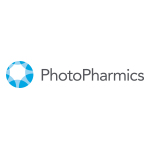Phase 3 Trial Aims to Establish Non-Motor Improvement in Parkinson’s PhotoPharmics and University of Rochester to Collaborate on Stay-At-Home Trial

SALT LAKE CITY–(BUSINESS WIRE)–#parkinsonsdisease–PhotoPharmics, a pioneer in specialized phototherapy for neurodegenerative diseases, today announced a collaboration with the Center for Health + Technology (CHeT) at the University of Rochester Medical Center to conduct an at home, telemedicine, phase 3 trial to establish safety and efficacy for the company’s non-invasive specialized phototherapy device for Parkinson’s disease.
This follows the FDA’s Breakthrough Device Designation for the trial device in April 2020 (see announcement).
“Our first trial showed improvement in quality of life on top of best managed care,” said Dan Adams, Science Officer at PhotoPharmics. Although the MDS-UPDRS part 1 was not designated as a secondary outcome, it was significant (-2.5 points, p=0.006), with 11/13 of the subitems moving in favor of the treatment. This is something we have never seen before, and may signal for the first time, broad, general improvement in non-motor symptoms. We think this is why the FDA granted this therapy a Breakthrough Designation. According to the International Movement Disorder Society, ‘…treatment options overall remain limited… and new treatments for non-motor symptoms in PD remains a top priority.’”
“A stay-at-home trial featuring a non-invasive device is perfect for our time,” said Dr. Ray Dorsey, lead investigator for the trial and director of CHeT. “Our team will assess a patient’s progress via video conference in the most natural and accurate setting—the convenience of their own home. Anyone with Parkinson’s from across the country can apply, even those in remote locations as long as they have an internet connection.”
Called the “Celeste Light for PD Trial,” this six-month phase 3 trial will feature Celeste®, a specialized light therapy device. Participants will use Celeste daily while enjoying their usual activities in the evening (such as watching TV, eating, reading, or using a computer). Celeste is convenient and non-invasive. It should be used along with current medical care so participants will not need to alter their existing medical regime. All clinical interactions between participants and researchers will be completed via teleconference so patients will not be required to travel. This opens the trial to patients across the country and participation should not increase the risk for COVID-19 infection. Additional trial details can be reviewed at Clinicaltrials.gov (#NCT04453033).
Dopaminergic therapies have long been the mainstay for treating motor features in Parkinson’s disease. “More needs to be done to address the devastating non-motor symptoms of PD,” said Adams. “In addition to motor function, the Celeste trial aims to address the wide-spread, critical unmet needs associated with non-motor function—such as sleep, fatigue, depression, anxiety, and cognition. No current therapy addresses general non-motor function, which can be more debilitating than motor function, and eventually may be the cause for institutionalization.”
The trial will begin in the fall and will be limited to 200 participants. Learn more at photopharmics.com.
About CHeT
The Center for Health + Technology (CHeT) is a clinical research organization within the University of Rochester. Their team designs and conducts multi-center clinical trials with collaborators from across the globe to accelerate clinical research and advance the development of therapeutics, benefiting individuals in our community and beyond. Since its inception over three decades ago, CHeT has reshaped the conduct of clinical trials, from incorporating novel technologies into clinical trial design to modeling disease progression. Learn more at https://www.urmc.rochester.edu/health-technology.aspx.
About PhotoPharmics
PhotoPharmics is a privately held, clinical-stage medical device company developing next-generation treatments for treating neurodegenerative diseases. Company founders have 30+ years of research and experience in this field. They previously developed specialized light solutions now widely used to regulate circadian rhythms in seasonal affective disorder, sleep disorders, anxiety, and depression (acquired by Philips-Respironics in 2007).
Drawing from research and recent trials, PhotoPharmics is developing applications of specialized light across several neurodegenerative diseases. The company aims to make a clinically meaningful difference in patients’ lives by delivering safe and effective non-invasive treatments. Investor inquiries are welcomed. Learn more at www.photopharmics.com.
PR6701
Contacts
Brett Walker
Senior Vice President
801.770.6960
brett.walker@photopharmics.com

